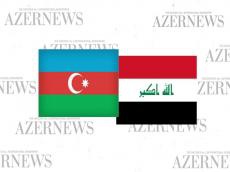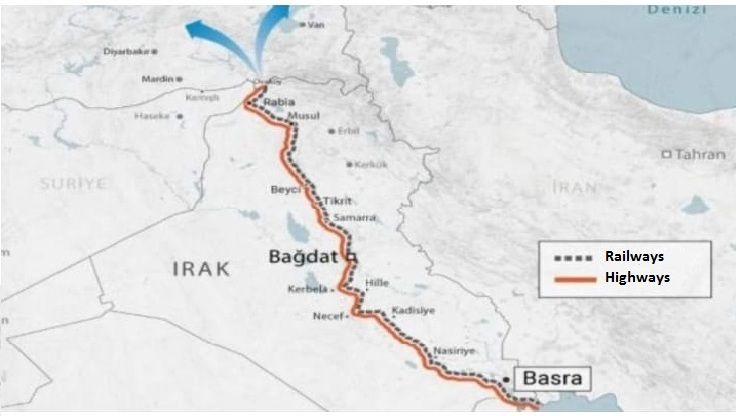|
|
TODAY.AZ / Politics
How Iraqi Kurdistan can be of strategic importance for Azerbaijan? - analysis
19 July 2023 [18:25] - TODAY.AZ

The meeting between the Azerbaijani president Ilham Aliyev and the Head of the Kurdistan Region of Iraq Nechirvan Barzani in Munich in February 2023, and the visit of Barzani to Baku in July 2023 strengthens further bilateral ties between two nations - Azerbaijanis and Kurds, which dates back thousands of years. It is worth noting that Kurds are one of the active minority groups in multi-ethnic Azerbaijan and they have played active roles in statehood building in the country. They have been broadly represented in Azerbaijan's state from art to politics.
Moreover, Azerbaijan always has a warm attitude toward Kurds and they have never felt any discrimination against themselves in Azerbaijan like other ethnic minorities. It should be mentioned that when tens of thousands of Muslim Kurds, together with Azerbaijanis were forcibly deported from Armenia where they had lived for thousands of years, Azerbaijan did not discriminate and embraced Kurds as well as Azerbaijanis. Besides, like Azerbaijanis, thousands of Kurds were subjected to ethnic cleansing in Karabakh conducted by Armenia, and those Kurds also found shelter in Azerbaijan. As for 30,000 Yezidi Kurds who were not dispelled are subjected to discrimination in Armenia. Gunning down the Yezidi funeral ceremony in Armenia in August 2017, and the arrest of a Yezidi human rights activist Sashik Sultanyan, are some of the examples of oppression that Yezidi Kurds encounter.
Keeping the historical bilateral ties in mind, the two meetings held in 2023 foreshadow the entering a new level. Strengthening relations between Azerbaijan and the Kurdistan region of Iraq has security and economic foundations.
From security point of view, Iraqi Kurdistan and Azerbaijan have the same enemies, more precisely Armenia and Iran. As is known, Armenian expansionist foreign policy is not limited only to Azerbaijan. It considers roughly all territories where Kurds live as Armenian territory. According to the Armenian claims, Urartu was the first 'Armenian kingdom', where the modern Iraqi Kurdistan is located. In other words, Kurds are supposed by Armenians so-called occupants in "historical hay lands". It also explains the reason of Armenian hatred against Kurds.
As for Iran, it is totally different story. Kurds are the third biggest minority groups after Azerbaijanis in Iran. As is known, no ethnic groups including Persians made up 50 percent of the Iranian population, but Azerbaijanis and Kurds together constitute over 45 percent of the population. So, Iran considers Kurds, like Azerbaijanis as a danger posed against its security. Therefore, the Mullah regime implements the same aggressive foreign policy against Azerbaijan as against Kurdistan. Propping up Christian Armenian terrorist groups against Muslim Kurds in Syria exemplifies our words. It should be mentioned that Iran repeats the same policy in the South Caucasus, more precisely, mullahcracy supports Christian Armenians against Shia segment in Azerbaijan. Besides, 70,000 Iranian Armenians have schools, but neither 35 million Iranian Azerbaijanis, nor 7 million Iranian Kurds have schools in Iran.
In terms of economy, Iraqi Kurdistan and Azerbaijan have great potential. Despite, Azerbaijan and Iraq are not bordered, but the two countries have several leverages to help boost the economy of each other. Iraq can deliver its natural gas to the European market through the TANAP project. By the way, Azerbaijan is interested in it, and even Azerbaijan's Foreign Ministry had invited Iraq to join the planned Trans-Anatolia natural gas pipeline in 2014.
On the other hand, Iraq could be the second route to the Arabian Gulf for Azerbaijan. Especially, after opening the Zangazur corridor this route can gather momentum.

It will pave the way to the prosperity of the region and Russia, the Central Asian countries could use the route as well. It is another reason that Iran opposes the corridor and goes the extra mile to destabilize Iraq, because the regime in Tehran does not want to lose its privilege, and leverage over other countries. Kurdistan is the most stable and dynamic region in Iraq and it could be a favorable market for Azerbaijan's growing non-resource industry. So, the region attaches importance to Azerbaijan and we could expect development in bilateral relations.
URL: http://www.today.az/news/politics/237243.html
 Print version
Print version
Connect with us. Get latest news and updates.
See Also
- 26 February 2025 [15:31]
President Ilham Aliyev makes phone call to President of Türkiye - 26 February 2025 [13:53]
Turkish President Recep Tayyip Erdogan commemorates victims of Khojaly genocide - 26 February 2025 [11:19]
Azerbaijani Foreign Minister Jeyhun Bayramov visits Saudi Arabia for talks - 26 February 2025 [11:00]
Alain Simonyan brings his fairy tales to international level - 26 February 2025 [10:40]
UK Ambassador pays tribute to Khojaly victims at memorial - 26 February 2025 [09:28]
President Ilham Aliyev shares post on Khojaly genocide anniversary - 26 February 2025 [00:05]
First VP Mehriban Aliyeva shares post on 33rd anniversary of Khojaly genocide - 25 February 2025 [14:22]
Court hearing on Ruben Vardanyan's criminal case continues in Baku - 25 February 2025 [14:00]
President Ilham Aliyev signs decree on measures for Azerbaijan's accession to Kimberley Process Certification Scheme - 25 February 2025 [13:26]
Pakistani PM visits "ASAN Khidmet" center in Baku
Most Popular
 Financing of radicals and terrorists - new revelations of USAID activities
Financing of radicals and terrorists - new revelations of USAID activities
 Macron framed the European Union: Frexit after Brexit
Macron framed the European Union: Frexit after Brexit
 Scientific conference dedicated to shared historical heritage held in Iraq
Scientific conference dedicated to shared historical heritage held in Iraq
 President of Azerbaijan Ilham Aliyev and Prime Minister of Pakistan Muhammad Shehbaz Sharif make press statements
President of Azerbaijan Ilham Aliyev and Prime Minister of Pakistan Muhammad Shehbaz Sharif make press statements
 Germany’s elections: Immigration takes center stage in crucial vote
Germany’s elections: Immigration takes center stage in crucial vote
 Culture Ministry presents jubilee medal to People's Artist Arif Babayev
Culture Ministry presents jubilee medal to People's Artist Arif Babayev
 Azerbaijani Parliament to discuss key legislative amendments this week
Azerbaijani Parliament to discuss key legislative amendments this week
